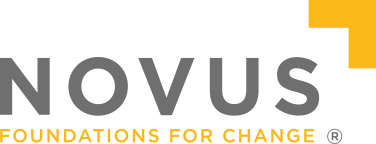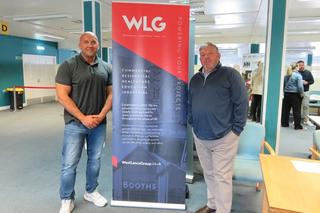Life after prison: Soft skills for success
Adult Provision

At Novus, we know that after learners have been released, re-integrating into society presents numerous challenges. In order to be successfully rehabilitated, securing stable employment is extremely important for individuals to re-integrate into society and become positive members of the community.
However, whilst having functional knowledge and technical skills are essential to finding employment upon release, learners must also obtain so called 'softer skills' such as communication and teamwork whilst in prison to successfully re-integrate into society upon release.
What are soft skills?
Soft skills refer to traits and behaviours which relate to how well an individual can work and interact with others. They're not specific to a particular job type, but they help employees excel in any workplace.
Examples of these skills include communication, teamwork, problem-solving and creativity.
Impact on employment and social integration
Finding employment is about more than having the right qualifications and technical skills. In order for learners to find long-term employment and be successful in their job role, they also need to have transferable skills that will positively contribute to their employment.
The National Soft Skills Association reported on research conducted by Harvard University, The Carnegie Foundation and Stanford Research Centre, which found that "85% of job success comes from having well-developed soft skills".
Offering education, training and enrichment opportunities for learners to develop these skills not only helps learners find employment upon release, but also helps them develop their communication and social skills so that learners can successfully reintegrate back into society.
Novus programmes for developing soft skills
Education, training and enrichment
At Novus we offer a variety of education courses, training and workshops which all positively contribute to the development of learner's soft skills.
Vocational training
Providing learners with industry-relevant, technical, practical skills and experience for their chosen career path means they can find employment or further training upon release and build a positive future.
However, through vocational training and workshops, learners also have the opportunity to develop specific skills such as adaptability, communication and time management, which will positively contribute to a learner's overall skillset and help them find employment upon release.
Vocational training also offers learners the unique opportunity to develop and refine their soft skills, in a work environment and tailor them so they can be utilised in a professional setting.
Creative Enrichment
Our creative enrichment provision is integral to our curriculum, especially for engaging learners who don't participate or struggle to participate in other forms of education.
Creative enrichment is crucial in allowing us to embed new and innovative ways of delivering education across the entire curriculum, including vocational subjects, maths and English, along with more traditional creative subjects.
Our creative enrichment programmes not only engage learners in education, but they also help to improve their soft skills, encouraging them to develop crucial social and interactive skills that will benefit them upon release.
Engagement and motivation - Creative activities capture learner's interest and motivation, further engaging them in education and making the learning process more enjoyable.
Critical thinking skills - A key benefit of creative enrichment is that there are no right answers; learners can explore, question and analyse information from different perspectives. Art encourages learners to solve problems in a way that they normally wouldn't which can then be transferred to their everyday lives.
Self-expression and communication - Creative enrichment provides a platform for learners to express their thoughts, feelings and ideas. This not only enhances their communication skills, but it also promotes self-awareness and emotional intelligence.
Collaboration and teamwork - Many creative activities involve collaboration, encouraging learners to work together, share ideas, and appreciate other perspectives. This not only enhances social skills but also prepares learners for collaborative work environments.
Cultural Capital - When entering prison, many learners have limited Cultural Capital, meaning their initial learning experiences may have been disadvantaged due to their background. However, through our creative enrichment programmes, we're able to provide additional, enriched learning experiences to support learners and broaden their experiences of culture, encouraging them to become well-rounded members of society.
Success stories and outcomes
Working with employer partners to support learners into employment upon release
At Novus, supporting learners into employment upon release is integral to their rehabilitation journey. If learners are equipped with the skills and knowledge necessary to find employment upon release, they're less likely to reoffend.
HMP Low Newton recently had a visit from Mott MacDonald to support with the employment provision at the prison.
A team of Project Managers from Mott MacDonald delivered a session to 6 female learners, focusing on helping them identify and develop their soft skills in preparation for future employment. This visit was facilitated collaboratively by Sarah, our Novus Works Resettlement Coordinator, and IAG provider, Acron.
The session was well received, leaving learners feeling positive and uplifted with encouraging feedback from learners including:
Sharing information about everyone's goals and listening to how to use soft skills was good
Working with the Bowes Museum to provide more opportunities for learners
Recently, the Bowes Museum worked with Novus learners and colleagues at HMP Deerbolt on their new project 'Unheard Voices'. The collaborative project brought together writing practitioners and learners to creatively engage with the artwork in the musuem's current exhibition, 'Kith and Kinship: Cornish and Lowry'.
Through a combination of discussions, activities, creative writing, and visual literacy exercises, the project aimed to deepen learner's understanding and connection to the exhibition whilst enhancing their creative writing skills.
The project empowered learners to produce unique interpretations of the exhibition, offering fresh perspectives for peers, families, tutors and general visitors. The project was flexible and adaptive allowing learners to share their experiences and inputs as well as actively engaging in the project. The result of this collaborative process was a creative Zine, which served as an alternative interpretative voice for the exhibition.
At Novus, we are dedicated to providing learners with creative enrichment opportunities that extend beyond the traditional academic provision that we offer. By exposing learners to different cultures and communities through projects like this, it allows them to expand on their knowledge, understanding and tolerance of others. Creative enrichment projects also allow learners from different cultures and communities to engage in education in a safe, understanding and welcoming environment, helping them to engage in education and share their stories through a positive outlet.
Join Novus in building a brighter future
Soft skills are crucial for anyone starting fresh after prison, helping them to unlock better job opportunities and successfully integrate back into society.
At Novus, we facilitate skills for progression and career pathways through personalised education provisions, making a real difference in the lives of those re-entering society.
To learn more about how Novus helps learners succeed, take a look at the news section.


